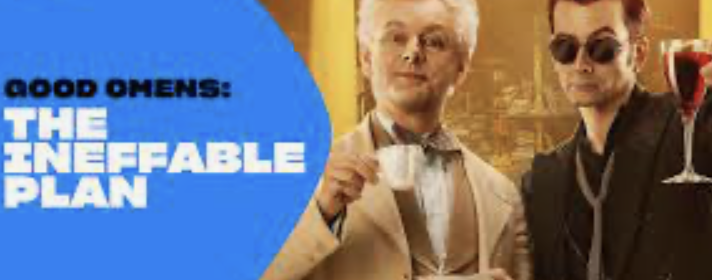
When we celebrate Christmas, we might not use the term Advent very often, but we might acknowledge it as a time awaiting the ‘big day’. For some, Advent is that time following the release of the John Lewis advert until we can finally open the presents under the tree (if you actually have one, given the Marks and Spencer’s advert). Advent comes from the Latin ‘adventus‘, meaning “to come”. For all, we might see that Advent, in church lingo that time from fourth Sunday before Christmas Day, is a journey for buying presents, putting up the decorations and preparing the freezer…if we can, or does it?
So, why is the Gospel of John chosen to be read during Advent,
when it doesn’t contain any of the Christmas Story?
Not just Back to the Future

This passage takes us from words of the prophet Isaiah to John the Baptist, and then to the one that follows: Jesus. It is linking what has come to the present, and to the future. It is like a sign that points in two directions. The author of this Gospel is suggesting that there is a link to our past, that reaches through to us now, and helps us onwards to the future. Some might call this tradition.

Isaiah’s quote is claiming that this is all part of God’s greater story, “the ineffable plan” as the angel in Good Omen’s might declare. That the seemingly end of the Hebrew Scriptures or Old Testament is not an ending at all, but a segue to the next chapter as it were, the New Testament. It’s one story that continues today.
Are we part of it as well?
Both John and Jesus begin in the wilderness. Scholars might point that John was from the Qumran region, living in the desert, whereas Jesus was from Nazareth in Galilee, and came to John as part of his own journey. They both have a set of disciples who follow them, although some got a free transfer to Jesus from John’s squad. Both proclaim the kingdom of God, widely different to what the Roman’s would describe as a kingdom. Both were betrayed, it is claimed, and then executed.
Whereas Isaiah Chapter 40 points to homecoming, a time of great transition, and hope – isn’t that Christmas?; John is speaking from a time of occupation, hoping for deliverance. The Messiah as others would call him, Jesus, is that sign of hope. There are many people, who today exist where their land is occupied, where their lives are dictated by others. We might not see a connection, but the Jews and Gentiles, those of other nations (Gentilis in Latin, people of other nations, also from the Hebrew goy (גוי, plural, goyim)) were also living in occupied times, by the Roman’s.
Celebration
In this time of materialistic celebration, where might we find that time to ponder upon homecoming: where we have travelled from?
- Could we remember those that have enabled us to be rooted elsewhere, and reconnect in some way?
- When we think of parties, why are we celebrating? Those presents will come and go. The Black Friday savings were possibly from older stock whose original price was fairly close to what was on offer that Friday. Can our celebrations be about something more people-centred?
- If John was a hairy chap, purportedly eating an odd diet of locusts and honey, can we also be counter-cultural this year as we prepare for Christmas?
I found the dialogue interesting and I enjoyed